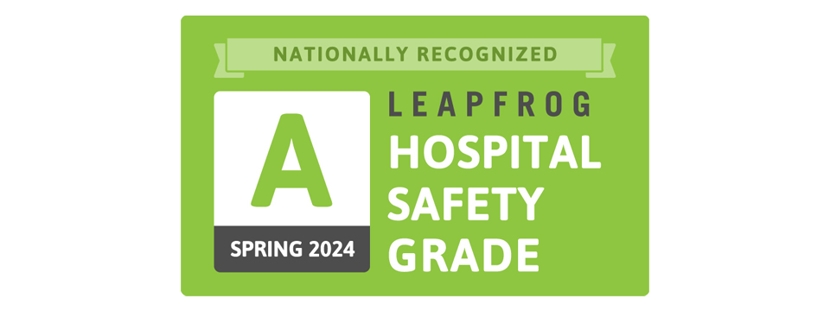Brady Birthing Center Recognized as Top Breastfeeding Friendly Hospital
- Category: News, Press Releases & Media Coverage, Awards
- Posted On:
- Written By: Carteret Health Care
Carteret Health Care is pleased to announce that the Brady Birthing Center has received the highest North Carolina Maternity Center Breastfeeding-Friendly Designation from the North Carolina Division of Public Health. The Brady Birthing Center in Morehead City was recognized with five stars, the top designation, for their efforts in implementing policies and practices that support a breastfeeding-friendly environment for patients. Carteret Health Care is one of only 9 North Carolina hospitals recognized with five stars.
“The goal of our program is to support new mothers with the tools they need to accomplish their own breastfeeding goals,” said Dr. Sheli Garrett-Albaugh. “Even before birth, our physicians and nursing staff work together to provide education, support and care for mothers and their babies that will last throughout a lifetime.”
The designation is based on the World Health Organization’s Ten Steps to Successful Breastfeeding. These steps support initiation, exclusivity and continuation of breastfeeding.
The Ten Steps to Successful Breastfeeding are:
- Have a written breastfeeding policy that is routinely communicated to all health care staff.
- Train all health care staff in skills necessary to implement this policy.
- Inform all pregnant women about the benefits and management of breastfeeding.
- Help mothers initiate breastfeeding within one hour of birth.
- Show mothers how to breastfeed, and how to maintain lactation even if they should be separated from their infants.
- Give newborn infants no food or drink other than breast milk unless medically indicated.
- Practice rooming in-allow mothers and infants to remain together-24 hours a day.
- Encourage breastfeeding on demand.
- Give no artificial teats (also called bottle nipples) or pacifiers to breastfeeding infants.
- Foster the establishment of breastfeeding support groups and refer mothers to them on discharge from the hospital or clinic.
This recognition comes after Carteret Health Care became the first North Carolina to implement innovative infant safety technology offering high resolution digital footprints. The new technology called CertaScan, is an added assurance of the newborn’s safety even once the baby goes home.
Participating facilities in North Carolina earn a star for every two steps implemented from the Ten Steps. The North Carolina Maternity Center Breastfeeding-Friendly Designation is valid for a period of three years. Facilities that implement additional steps may re-apply for a higher star level at any time. This initiative promotes a continuum of quality improvement and is endorsed by the North Carolina Hospital Association and the North Carolina Child Fatality Task Force.
In January 2011, US Surgeon General Regina Benjamin released The Surgeon General’s Call to Action to Support Breastfeeding, which included the Health Care Action Step to “ensure that maternity care practices throughout the United States are fully supportive of breastfeeding.” Carteret Health care is committed to improving the care of our youngest and most vulnerable citizens. We are proud to join the Division of Public Health in efforts to promote, protect and support breastfeeding in North Carolina.
In addition to Breastfeeding education given prior to birth, Carteret Health Care further promotes the program by providing Breastfeeding Support where a Breastfeeding Educator Registered Nurse makes initial contact in the hospital with mom and the baby and continues to offer support and assistance even after discharge.
Other recognition for breastfeeding efforts were recently awarded here in Carteret County to Carteret Ob-Gyn Associates who received a Mother-Baby Award for outpatient healthcare clinics from the North Carolina Breastfeeding Coalition.
Dr. Garrett concluded, “Earning these top breastfeeding recognitions along with being the only NC hospital to offer the latest safety technology shows Carteret’s steadfast commitment to ensure the safety and health of babies both inside and outside the hospital.”

